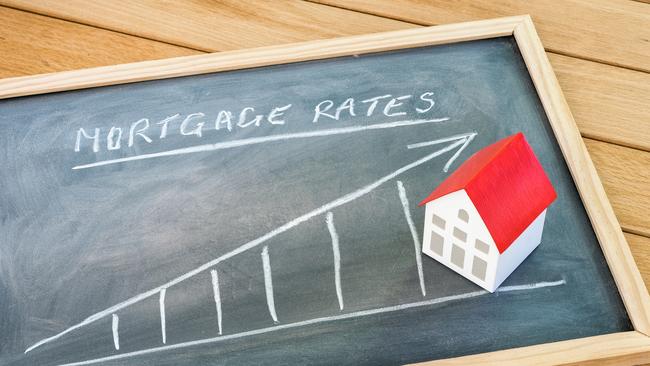
By Christmas/New Year, the Australian experience will be very different to anything we have seen in recent years – large areas of our economy will go into a severe downturn and, in those areas, many of the current labour shortages will disappear.
But there will be other areas of the society that will hardly notice anything and in fact, will see strong demand.
The Australian experience will be different to NZ, the US and most other countries because in the boom we engaged one of world’s largest home lending sprees; our Reserve Bank took too long to act and then, almost in panic, went too fast; our mortgages are mostly on flexible rates and there is a two to three months delay between rate rises and the impact on borrowers.
To explain what is going to happen, I will combine the research of CBA economist Gareth Aird and a CBA customer couple that are actually living out the Aird predictions.
They bought their first house last December in an outer suburb and their loan is among the 30 per cent of the total loan stock that have yet to feel pain.
They are only just starting to realise that they will face a dramatic reduction in their spending power come Christmas.
My friends borrowed $650,000 and when in May the first of the interest rate hikes took place (0.25 per cent), nothing happened to repayments.
Then in June, there was a 0.5 per cent rise and again nothing happened to the repayments.
It was not until this month that their payments have risen to reflect the May/June rate rises. But the burden is not much more than $100 a month.
To them it all looks like media hype.
I explained to them that by December/January, their repayments will have risen by about $1000 a month or $12,000 a year to add to the power, gas, petrol, food and a multitude of other cost rises. What!
They both have relatively secure jobs and the CBA don’t need to worry.
But the enterprises that are currently enjoying their discretionary spending – cafes, clothing retailers, liquor outlets and the like – do need to worry.
Maybe there will be a credit-fuelled spending boost at Christmas, but 2023 will be bleak for all those selling discretionary items to holders of 30 per cent of Australia’s home mortgage stock.
Lifestyles will change and confidence will be hit by lower house prices.
Many of those complaints of labour shortages will evaporate.
The impact of this dramatic change won’t show up in the official statistics until about March, so it is possible that a frustrated Reserve Bank will do what the market expects and keep increasing interest rates.
If they do, the Reserve Bank will create a very severe recession indeed.
But if they don’t, then inflation may stay high. Hobson’s choice.
But there is another side.
Last week I was yarning to a real estate agent in an affluent coastal town.
He tells me that everyone expects house prices to fall so, if he doesn’t lower the asking price by 10 per cent, no one shows any interest in the property.
But once he lowers the price by 10 per cent, buyers come flooding in and private bidding usually takes the price back up to what it was before the reduction.
About 20 per cent of the population have no mortgages and lots of savings.
Their houses have risen in price despite any fall and although shares are down, they are now getting returns on cash deposits.
For that group, affluent living continues although they may have to help their children.
At the jobs summit last week, Labor ministers bemoaned the fact that wages and salaries had not risen but they are dealing with a lag indicator.
Of far more value in the current environment is the Seek index of advertised salary trends, which rose by 4.1 per cent in the year to July 2022.
Advertised salaries grew in every state and territory with Queensland, Tasmania and WA in the top bracket and South Australia and the ACT rising less than 2 per cent.
The best performing salaries were in design and architecture plus information and technology, but in government areas, rises were actually lower than the average.
Salaries in the private sector are rising but like the Reserve Bank, the government is dealing with old figures, so is pushing for more wage rises and perhaps forcing the Reserve Bank to into creating a severe downturn.
Fortunately, the summit, although it was supposed to be advocating higher wages, was actually warning companies that employing people was going to be much tougher and more dangerous. Unions have already isolated banks as a juicy target for industry-wide bargaining.
Watch those branches shut and workers retrenched if the unions pull that stunt when mortgage volumes are falling.
As for inflation, there will be lots of price cutting.
But by 2023, core elements will still be high.
I think the community reaction will be so severe to the first doses of interest rate inflation-fighting medicine that the current Reserve Bank board may well embrace the sentiments of previous governor Ian Macfarlane who says that it may be too painful to bring inflation below four per cent at this time.
The current target is two to three per cent.




The Reserve Bank’s interest rates increase on Tuesday afternoon means we now have a clear road map for what is ahead.